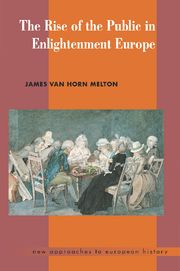Book contents
- Frontmatter
- Contents
- List of tables
- Acknowledgments
- Introduction: What is the public sphere?
- Part I Politics and the rise of “public opinion”: the cases of England and France
- 1 The peculiarities of the English
- 2 Opacity and transparency: French political culture in the eighteenth century
- Part II Readers, writers, and spectators
- Part III Being sociable
- Conclusion
- Index
1 - The peculiarities of the English
Published online by Cambridge University Press: 05 June 2012
- Frontmatter
- Contents
- List of tables
- Acknowledgments
- Introduction: What is the public sphere?
- Part I Politics and the rise of “public opinion”: the cases of England and France
- 1 The peculiarities of the English
- 2 Opacity and transparency: French political culture in the eighteenth century
- Part II Readers, writers, and spectators
- Part III Being sociable
- Conclusion
- Index
Summary
Foundations of English exceptionalism
“For a long time, and especially since the beginning of this century, there has been no country where more has been written about political affairs than England.” August Ludwig Schlözer, the German historian and journalist who made this claim in 1776, was well acquainted with English political culture. As a professor at the University of Göttingen, which was located in the territory of Hanover and founded by George II, Schlözer was himself a subject of the German dynasty that had ruled Britain since 1714. A convinced Anglophile and an ardent admirer of British political institutions, Schlözer considered the rebellious American colonists selfish ingrates.
But if Schlözer was anything but an impartial observer, he was right to consider English political culture unique in fundamental ways. Its relatively free press, party structure, and parliamentary system fostered a degree of political contestation – outside as well as within formal institutions of government – that had no counterpart among the major states of the continent. The vibrancy of England's political public sphere grew out of the turbulent struggles of the English Revolution, a period when censorship all but collapsed, political pamphlets flooded the publishing market, popular petitions and the circulation of parliamentary speeches proliferated, and coffeehouses arose as venues of political discussion. Despite the restoration of the Stuart dynasty in 1660, the Exclusion Crisis of 1679–81 (so named after efforts in parliament to exclude Charles II's heir, the Catholic James II, from the succession) was marked by a resurgence of political activism at all levels.
- Type
- Chapter
- Information
- The Rise of the Public in Enlightenment Europe , pp. 19 - 44Publisher: Cambridge University PressPrint publication year: 2001
- 1
- Cited by

